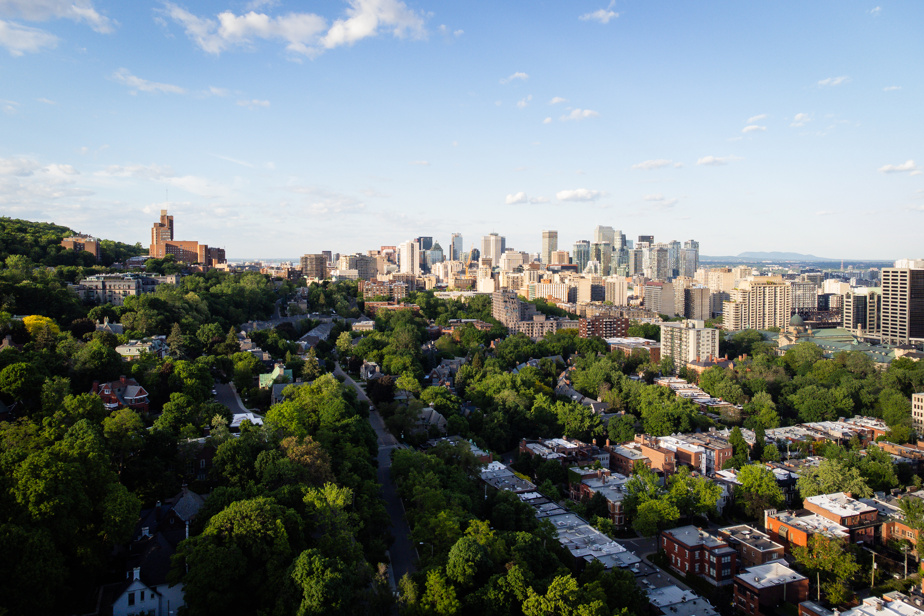Earlier this week, members of Montreal’s Muslim community gathered in a park to celebrate the holiday of Eid al-Adha, a day when families traditionally wear their best clothes, share gifts, party and pray together.
Religious celebrations are not uncommon at Parc des Hirondelles, in the Ahuntsic-Cartierville borough: for several years, the City of Montreal has authorized a Catholic mass for the Italian community on the grassy area.
Eid was celebrated in the park last year without objection. But this year, when images of Muslims kneeling to pray on the grass were widely shared on social media — including by Quebec media pundits — the borough began receiving complaints.
“It’s rare that we receive 10 or 15 emails on exactly the same subject, at exactly the same time, so […] we know that something is happening on social networks or in the media,” said the Mayor of the Ahuntsic-Cartierville district, Émilie Thuillier. The complaints, according to her, were enough for her to consider banning all religious events at Parc des Hirondelles.
The episode is part of a long-standing debate in Quebec on the presence of religious expression in public life, particularly Islamic expression. The province’s promotion of state secularism led to the adoption of Bill 21, which prohibits certain public servants, including teachers and police officers, from wearing religious symbols at work.
David Rand, spokesperson for the Rally for Secularism, affirms that religious celebrations have their place in places of worship and not in public spaces. Her organization wrote an open letter, published in Le Devoir, in which it asserted that the City allowed a public park to be transformed into a “sacred place of worship.”
In an interview, Mr. Rand said the religious event “excludes people of other religions [in] a public park that is open to the general public. What they’ve done is turned part of the park into a temporary mosque.”
Mr. Majzoub says the mayor was “fair” in allowing the community – made up of neighborhood residents and taxpayers – to celebrate in the park, adding that some people are disproportionately exaggerating the event and targeting Quebec Muslims .
Frédéric Dejean, professor of religion at the University of Quebec in Montreal, says the reaction to the event on social media and from political commentators has been surprising, but it comes amid rising anti-Muslim sentiment in Western countries.
Every year, Mr. Dejean says, thousands of Christians gather for the March for Jesus in the streets of downtown Montreal to sing and spread the Gospel, while Krishnas regularly chant in metro stations.
These manifestations of religious expression seem to go unnoticed, he said. “It’s only when it comes to Muslims that some say it seems like a problem. »
Mr. Dejean believes that it is important in a democratic society to allow people to express their religion, even in public spaces, while respecting certain limits. Religious events, like secular events, must respect laws regarding noise limits and hate speech, he said.
What is important, he added, is that the city or boroughs ensure that the events they authorize on their territory do not violate the law.
Rand says all faiths, including Christianity and Judaism, have fundamentalists in their congregations, but he says Islam has a “specific political goal: to occupy as much space as possible.”
He rejects accusations of Islamophobia, saying the word itself is a “nonsense term” used to censor criticism of religion.
Mr. Majzoub disagrees. He claims that Muslims are subject to different standards than other faiths in Quebec.
“They went to the City and got approval. It’s not imposed,” he said about celebrating Eid. Quebecers do not mention the importance of secularism “when it comes to Islam,” according to him.
Quebec Minister of Secularism, Jean-François Roberge, did not respond to a request for comment.




